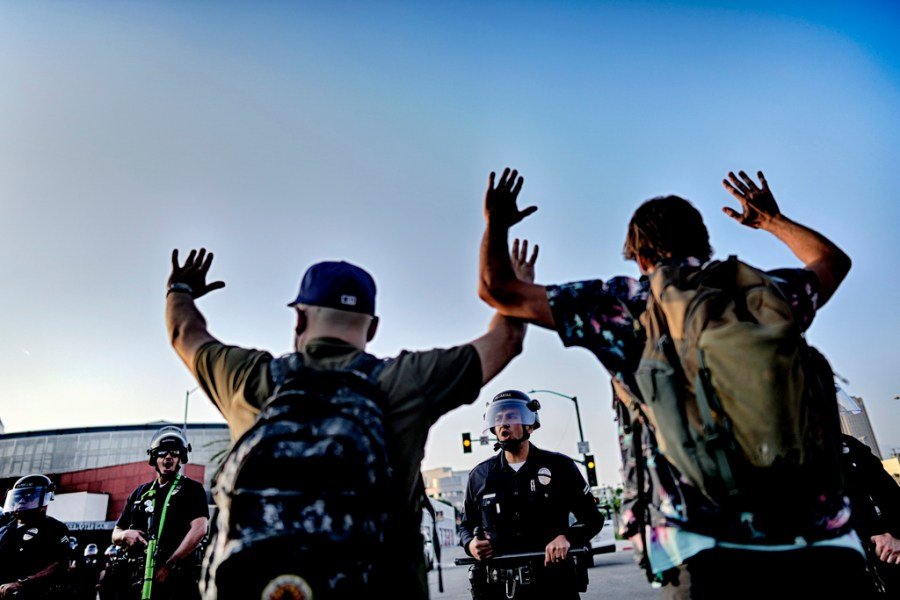
The unrest in Los Angeles isn’t just about politics. It is a symptom of something deeper: a national collapse of resilience.
Behind the protests lies a broader crisis, a fragile mindset that mistakes discomfort for danger, grievance for identity, and emotional reactivity for truth.
New polling reveals a striking psychological divide: 45 percent of liberals report poor mental health, compared to just 19 percent of conservatives. This is not about ideology. It reflects two competing visions of how Americans are being taught to face adversity.
As a psychotherapist practicing in New York City and Washington, D.C., I have seen firsthand how therapy has changed over the years. Once a tool for building resilience and fostering growth, it has increasingly become a system that rewards victimhood and reinforces vulnerability. Today’s therapy culture pathologizes ordinary discomfort as trauma and treats accountability as incompatible with emotional safety.
One woman told me her previous therapist urged her to quit a new job after only one week because it “triggered” her. The real issue was difficulty taking directions. But instead of confronting it, the therapist simply validated her discomfort.
Another patient was told that setting “healthy boundaries” meant cutting off her entire family. No conversation, no healing — just isolation framed as progress.
This is not therapy. It is enabling.
This mindset goes well beyond the therapy room. It spills into classrooms, workplaces, media and now the streets. When people are conditioned to see themselves as perpetual victims and feel aggrieved, that inner turmoil eventually erupts into public unrest.
Take the recent “No Kings” protests, loosely organized around anti-monarchy themes. These demonstrations erupted across major cities without clear demands or coherent goals. They were not political movements, but emotional releases shaped by a culture that values validation over responsibility and reaction over resilience.
In my practice, I see a growing pattern, especially among younger patients. Many now view the world through a rigid binary of safe versus unsafe, oppressor versus oppressed. While that lens may offer clarity, it ultimately stunts growth, fuels anxiety and deepens social division. Emotional strength is mistaken for aggression. Assertiveness is labeled harm. Coping is no longer a virtue.
More concerning, this worldview is being institutionalized. From diversity, equity and inclusion training centered on personal grievance to college campuses where opposing views are treated as psychological threats, we are cultivating a generation that expects the world to adapt to their emotions rather than learning how to adapt to the world.
The consequences are growing. A society that teaches its citizens to fear discomfort will falter when facing the essential demands of adulthood, leadership and civic duty. If this psychological trend persists, we will experience more unrest, greater dysfunction and a deeper breakdown of national unity — not from politics, but from a widespread failure to handle everyday challenges.
Therapy’s original promise was to prepare people for life’s challenges. It taught that discomfort is part of growth and that personal responsibility is the path to healing. We must return to these principles.
Therapists need to stop encouraging dependence and instead help patients develop real coping skills. Schools should teach grit and perseverance alongside empathy. Workplaces should reward accountability and resilience, not coddling. Media outlets should highlight stories of individuals overcoming adversity rather than celebrating grievance.
If we do not course-correct soon, this fragile mindset will become the cultural norm. More young people will be paralyzed by adversity, institutions will prioritize emotion over reason, and communities will unravel under the strain of perceived harm. This rising fragility threatens the very foundation of our society.
What is at stake is more than just mental health. It is the future of a society capable of facing hardship and solving problems together. America’s strength has always come from its ability to persevere and overcome challenges. Without that strength, unrest will continue to grow, dividing us further.
The unrest in Los Angeles is not simply another protest. It mirrors what’s happening inside many Americans — a breakdown in coping, a decline in resilience and a confusion between emotions and reality.
Our national mental health crisis is no longer confined to private sessions. It is playing out in public. Until we stop treating fragility as a virtue, America’s unraveling will continue — in therapy offices, on college campuses and in the streets alike.
Jonathan Alpert is a psychotherapist practicing in New York City and Washington, D.C., and author of the forthcoming book, “The Therapy Trap.”


